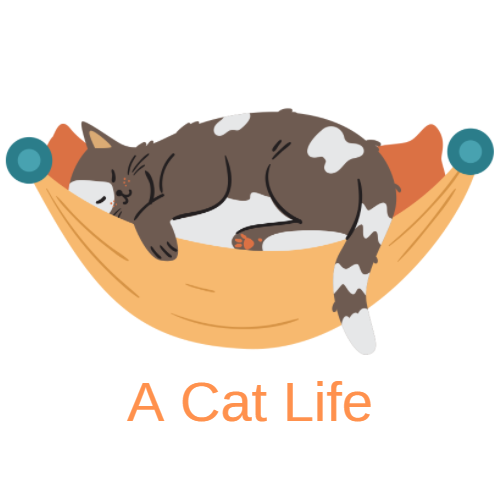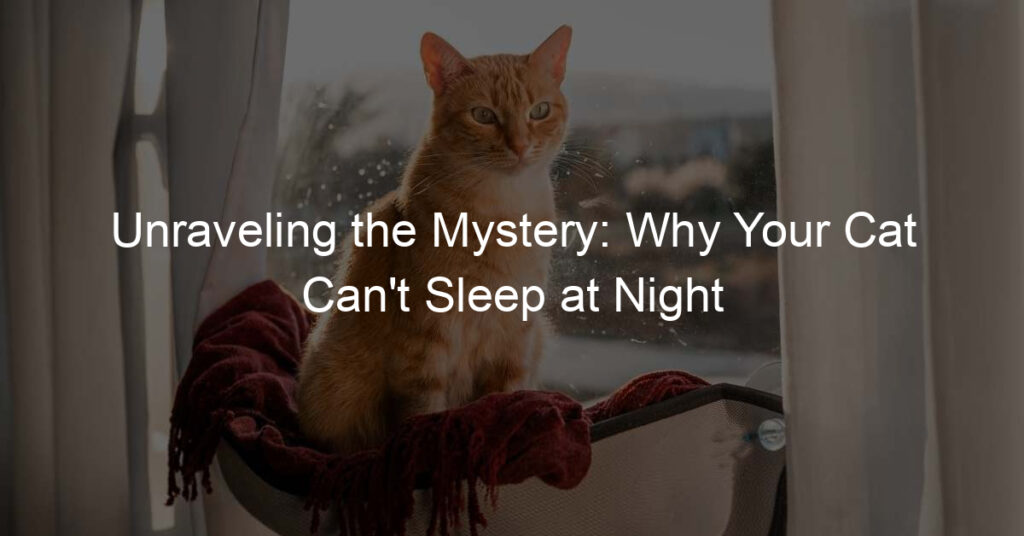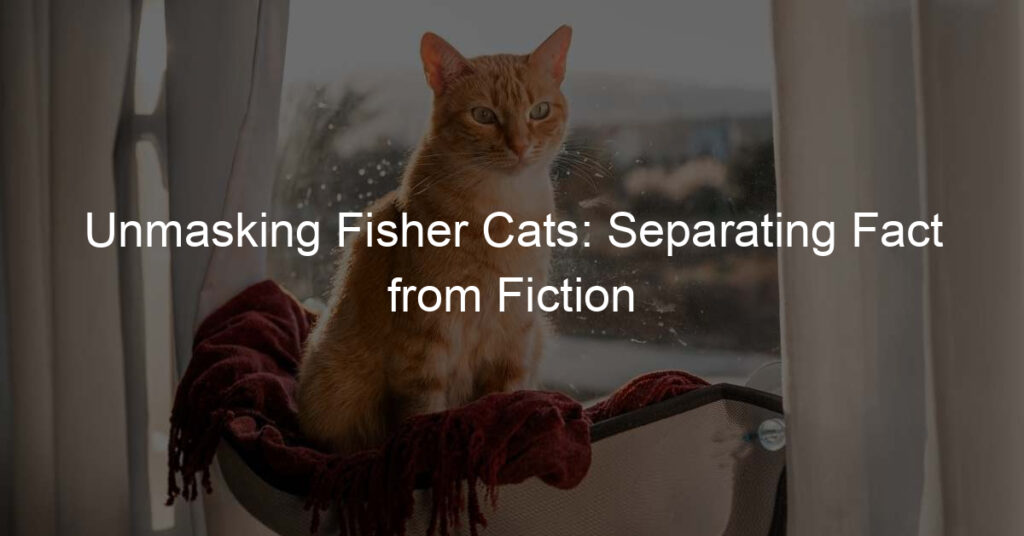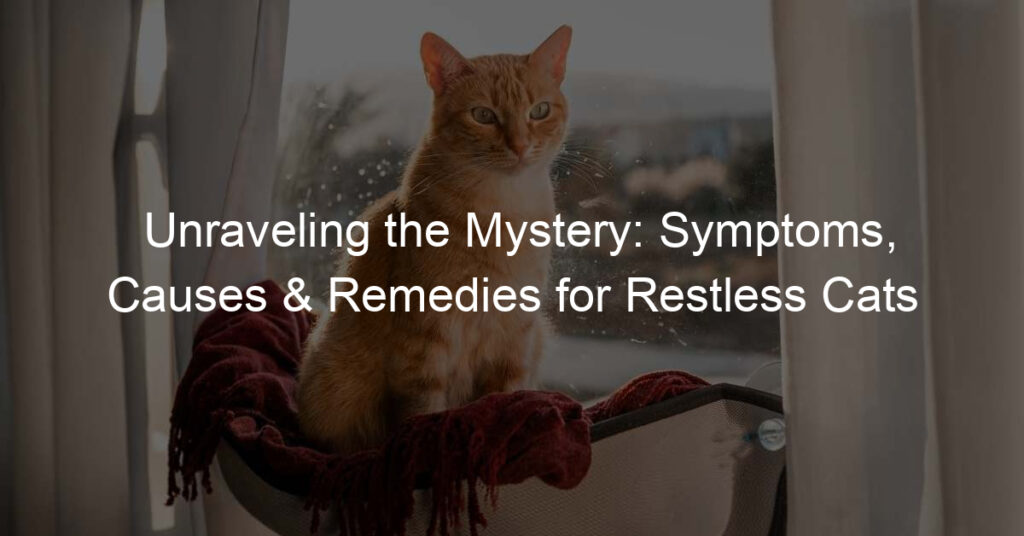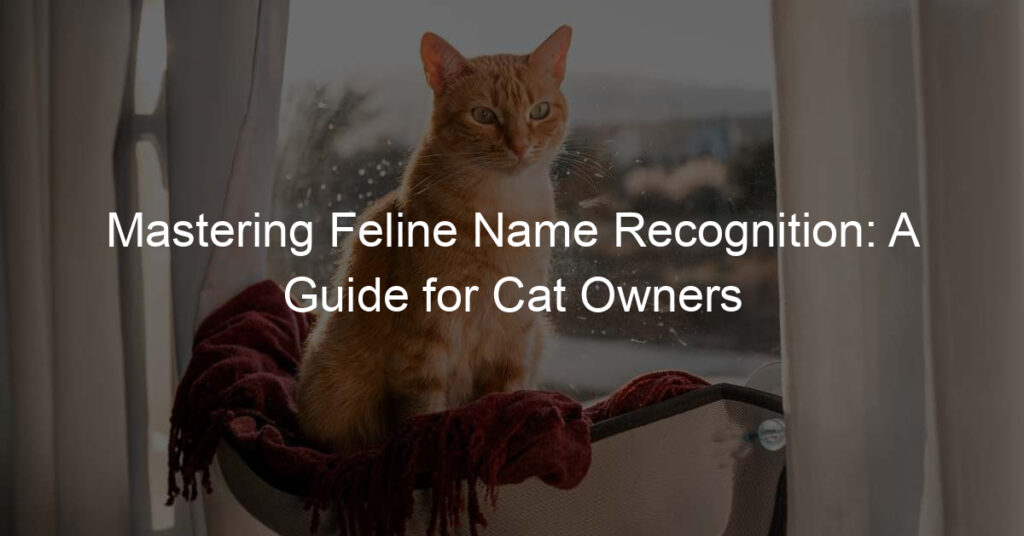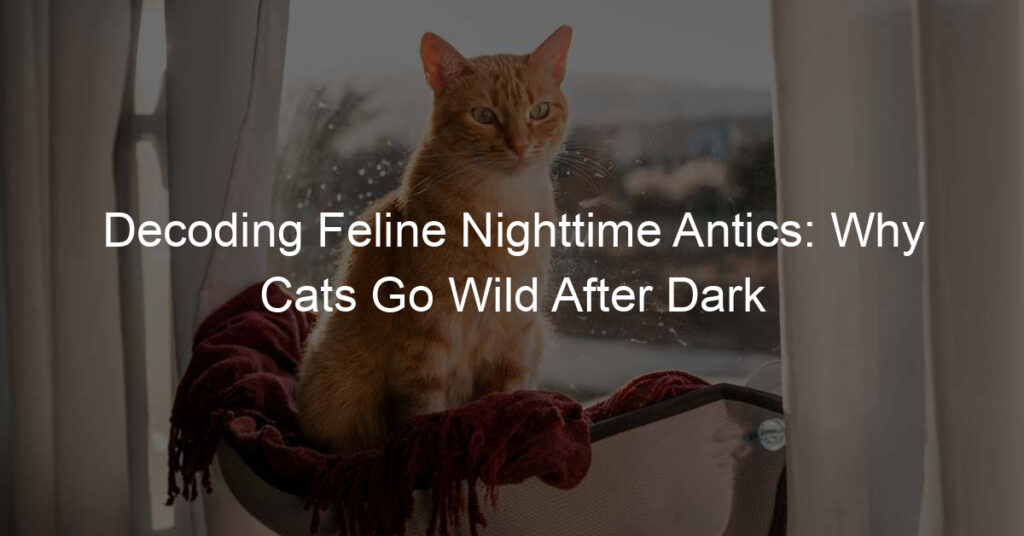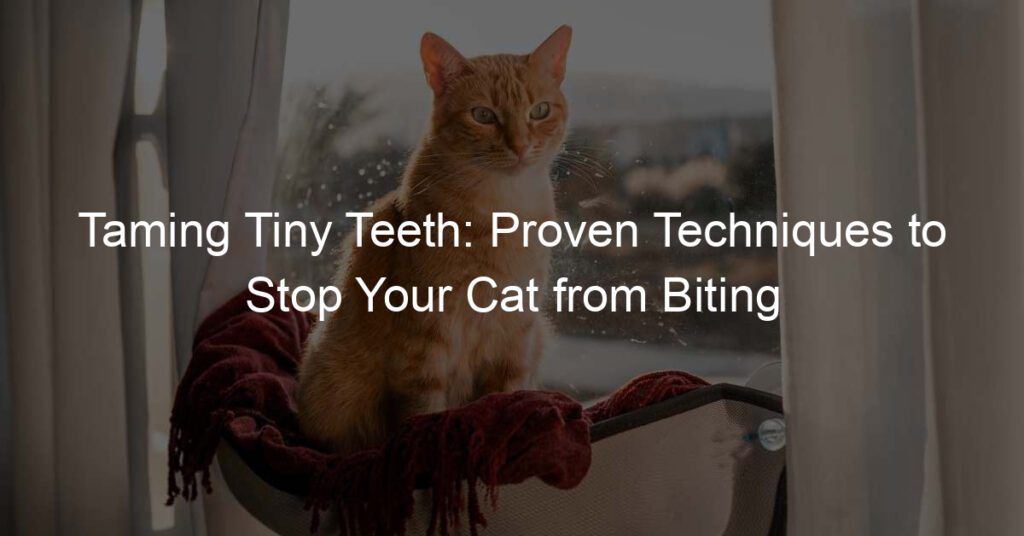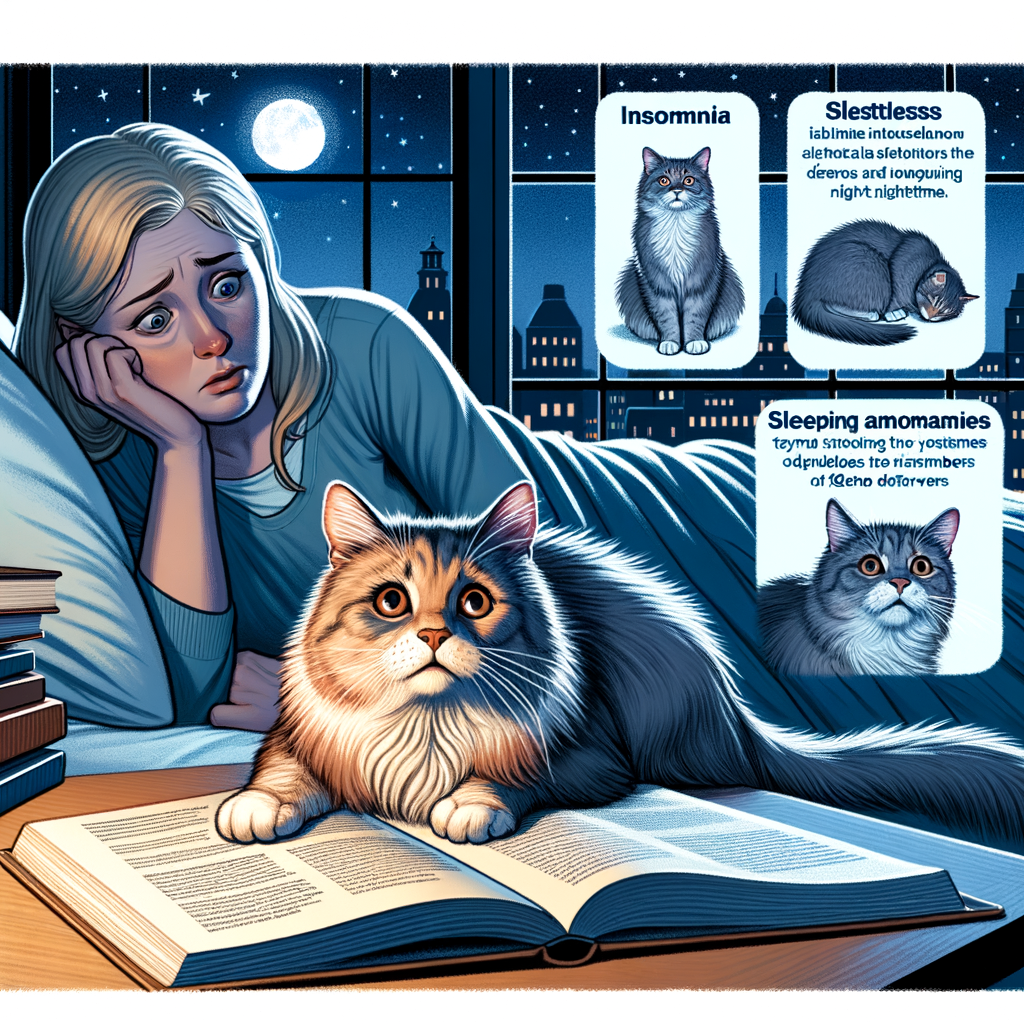
Introduction: Cat Sleep Problems
Just like humans, our feline friends can experience sleep problems. Understanding their sleep behavior and disturbances can help us ensure they get the rest they need. In this article, we’ll delve into the fascinating world of cat sleep and discuss common sleep problems cats may face.
- Overview of Cat Sleep Behavior
- Understanding Cat Sleep Disturbance
Cats are known for their love of sleep. On average, a cat sleeps for about 13 to 14 hours a day. This sleep pattern is a result of their predatory nature. In the wild, cats need to conserve energy to hunt, and sleeping is the best way to do that. However, not all cat sleep is the same. Cats experience both deep and light sleep. During the light sleep phase, your cat might appear to be awake, with ears twitching and eyes partially open. This is normal and is a way for cats to stay alert to potential threats even while resting.
Just like us, cats can have disturbed sleep. This can be due to various reasons like changes in the environment, stress, or health issues. A disturbed sleep pattern may result in your cat being restless, irritable, or even showing changes in appetite. It’s important to understand these signs as they may indicate a sleep disorder. If your cat’s sleep disturbance continues for a prolonged period, it’s best to consult a vet.
In the following sections, we will explore how to recognize symptoms of restlessness, common causes of restlessness, and how to address these issues to ensure your cat gets a good night’s sleep.
Recognizing Restless Cat Symptoms
When it comes to our feline friends, it’s crucial to be aware of any changes in their behavior. Restlessness in cats can be a sign of various health issues. Here are some symptoms to look out for:
- Identifying Unusual Behaviors
- Physical Signs of Restlessness
- Changes in Sleep Patterns
One of the first signs of restlessness in cats is a change in their usual behavior. This could include increased aggression, excessive grooming, or a sudden lack of interest in their favorite activities. Cats are creatures of habit, so any significant changes in their behavior could indicate that something is wrong.
Physical signs of restlessness in cats can include pacing, inability to settle down, and frequent changes in position. You may also notice that your cat is more vocal than usual, meowing or yowling at odd times. These signs can often be overlooked, but they are important indicators of your cat’s well-being.
Cats are known for their love of sleep, so any changes in their sleep patterns can be a cause for concern. If your cat is sleeping more or less than usual, or if their sleep seems disturbed or restless, it could be a sign of underlying health issues. Keep an eye on your cat’s sleep habits and consult a vet if you notice any significant changes.
Remember, it’s always better to err on the side of caution when it comes to your cat’s health. If you notice any of these symptoms, it’s a good idea to consult with a professional. Your cat’s comfort and well-being should always be a top priority.
Common Causes of Cat Restlessness
One of the main causes of restlessness in cats is physical health issues. These can range from illnesses to the natural aging process. Let’s delve deeper into these factors.
Physical Health Issues
Physical health issues can significantly impact a cat’s sleep patterns and cause restlessness. Two key factors are illnesses and the impact of aging.
- Illnesses that can cause restlessness: Cats, like humans, can have their sleep disrupted by various illnesses. For example, conditions like hyperthyroidism, arthritis, and dental disease can cause discomfort and pain, leading to restlessness. Cats with these conditions may have difficulty finding a comfortable position to sleep, or they may wake up frequently due to pain.
- Impact of aging on sleep: As cats age, their sleep patterns can change. Older cats may sleep more during the day and less at night, leading to increased restlessness during the nighttime hours. This change in sleep pattern is often due to decreased energy levels and changes in the cat’s internal body clock.
Moreover, illnesses that cause increased thirst or urination, such as diabetes or kidney disease, can also disrupt a cat’s sleep. Cats with these conditions may need to wake up frequently to drink or use the litter box, leading to a disrupted sleep pattern.
Furthermore, older cats are more likely to suffer from conditions like arthritis, which can cause discomfort and disrupt sleep. Cognitive dysfunction, a condition similar to Alzheimer’s in humans, can also affect older cats, leading to confusion and restlessness at night.
In conclusion, physical health issues are a common cause of restlessness in cats. If your cat is showing signs of restlessness, it’s important to consult with a veterinarian to rule out any underlying health issues.
Environmental Factors
Just like humans, cats can also get affected by their surroundings. Various environmental factors can lead to restlessness in cats. Let’s delve into some of these factors:
- Impact of Noise and Light
- Changes in the Household
- Stress and Anxiety Triggers
Cats have a keen sense of hearing and are sensitive to light. Loud noises, such as a vacuum cleaner or loud music, can disturb their sleep. Similarly, bright lights can also affect their sleep pattern. According to a study, cats prefer a quiet and dimly lit environment for a peaceful sleep.
Changes in the household, such as moving to a new house, arrival of a new pet or a baby, or even rearranging furniture, can cause stress in cats. This stress can lead to restlessness and affect their sleep. It’s important to introduce any changes gradually to help your cat adjust.
Cats can also suffer from stress and anxiety, which can cause restlessness. Common triggers include changes in routine, separation from the owner, or conflicts with other pets. It’s crucial to identify and address these triggers to ensure your cat’s well-being.
| Environmental Factor | Impact on Cat’s Sleep | How to Address |
|---|---|---|
| Noise and Light | Can disturb sleep | Provide a quiet and dimly lit environment |
| Changes in the Household | Can cause stress and restlessness | Introduce changes gradually |
| Stress and Anxiety Triggers | Can cause restlessness | Identify and address triggers |
Understanding these environmental factors and how they affect your cat’s sleep can help you create a more comfortable and stress-free environment for your furry friend.
Feline Sleep Disorders
Just like humans, cats can also suffer from sleep disorders. One such disorder is cat insomnia. Let’s delve deeper into understanding this condition.
Understanding Cat Insomnia
Insomnia in cats is a condition where the cat has trouble falling asleep or staying asleep. It is not as common as in humans, but it can still affect the quality of life of your feline friend. Let’s look at the causes and how to identify this disorder.
- Causes of Insomnia in Cats
- How to Identify Insomnia
There are several reasons why your cat might be having trouble sleeping. These include stress, changes in their environment, or medical conditions such as arthritis or hyperthyroidism. Older cats are more prone to insomnia due to age-related health issues.
Identifying insomnia in cats can be a bit tricky as cats are known to sleep for long hours. However, if your cat is awake at night, restless, or showing signs of fatigue during the day, it might be suffering from insomnia. Other signs include changes in behavior, such as increased aggression or anxiety.
Understanding the causes and signs of insomnia in cats is the first step towards helping your feline friend get a good night’s sleep. If you suspect your cat is suffering from insomnia, it is recommended to consult with a vet for proper diagnosis and treatment.
Other Sleep Disorders in Cats
While insomnia is a common sleep disorder in cats, it’s not the only one. Cats can also suffer from other sleep-related issues such as narcolepsy and sleep apnea. Let’s delve deeper into these disorders.
- Narcolepsy in Cats
Narcolepsy is a neurological disorder that affects the control of sleep and wakefulness. Cats with narcolepsy experience excessive daytime sleepiness and sudden episodes of sleep during normal waking hours. This condition is rare in cats and is usually inherited.
Signs of narcolepsy in cats include sudden collapse into sleep, muscle weakness, and temporary paralysis. These episodes can last from a few seconds to several minutes. While it may be alarming to see your cat suddenly fall asleep, narcolepsy is not life-threatening. However, it can affect your cat’s quality of life.
- Sleep Apnea in Cats
Sleep apnea is another sleep disorder that can affect cats. It’s characterized by pauses in breathing during sleep. These pauses can last for several seconds and may cause your cat to wake up. This can lead to fragmented sleep and excessive daytime sleepiness.
Obesity is a common cause of sleep apnea in cats. Other causes include nasal obstructions and certain breeds’ genetic predispositions. Symptoms of sleep apnea in cats include loud snoring, gasping for air during sleep, and daytime sleepiness.
Both narcolepsy and sleep apnea can be diagnosed by a veterinarian through a physical examination and possibly a sleep study. Treatment options vary depending on the severity of the condition and the cat’s overall health.
Remember, a good night’s sleep is essential for your cat’s health and well-being. If you notice any changes in your cat’s sleep patterns, don’t hesitate to consult your vet.
| Disorder | Symptoms | Common Causes |
|---|---|---|
| Narcolepsy | Excessive daytime sleepiness, sudden episodes of sleep, muscle weakness | Usually inherited |
| Sleep Apnea | Loud snoring, gasping for air during sleep, daytime sleepiness | Obesity, nasal obstructions, genetic predispositions |
Addressing Cat Restlessness
When your feline friend is restless, it can be a cause for concern. Restlessness in cats can lead to sleepless nights for both you and your pet. Fortunately, there are several treatment options available to help your cat find peace and calm. Let’s explore some of these options.
Restless Cat Treatment Options
There are three main categories of treatment options for cat restlessness: medical treatments, natural remedies, and behavioral interventions. Each has its own benefits and potential drawbacks, so it’s important to consider all options and consult with your vet before making a decision.
- Medical treatments
- Natural remedies
- Behavioral interventions
Medical treatments for cat restlessness often involve prescription medications. These can include anti-anxiety drugs or sedatives. While these can be effective, they should be used as a last resort due to potential side effects. Always consult with your vet before starting any new medication for your cat.
Natural remedies can be a gentler alternative to medical treatments. These can include herbal supplements, aromatherapy, or even certain types of cat food designed to promote relaxation. Remember, what works for one cat might not work for another, so it may take some trial and error to find the right natural remedy for your cat.
Behavioral interventions involve changes in your cat’s environment or routine to promote calmness. This could include providing more playtime during the day to tire your cat out, or creating a quiet, dark space for your cat to sleep at night. Behavioral interventions can be a great first step in addressing cat restlessness, as they don’t involve any medications or supplements.
Remember, every cat is unique. What works for one may not work for another. It’s important to be patient and persistent in finding the right treatment option for your restless cat. Always consult with a vet before starting any new treatment plan. With the right approach, you can help your cat find the peace and calm they deserve.
Managing Restless Cat at Night
Managing a restless cat at night can be a challenging task. However, with the right approach, you can help your feline friend get a good night’s sleep. Here are three effective strategies:
- Creating a Calm Environment
- Establishing a Routine
- Interactive Play Before Bedtime
Creating a calm and quiet environment for your cat at night is crucial. Cats are sensitive to noise and can become restless if their surroundings are noisy or chaotic. Ensure that your cat’s sleeping area is quiet, dark, and comfortable. Use soft blankets and pillows to create a cozy space. Also, try to minimize sudden loud noises that might startle your cat and cause restlessness.
Cats are creatures of habit. They thrive on routine and predictability. Establish a consistent bedtime routine for your cat. This could include feeding your cat at the same time each evening, followed by a quiet activity such as grooming. Over time, your cat will associate these activities with bedtime, which can help reduce restlessness at night.
Interactive play before bedtime can help tire your cat out and promote better sleep. Use toys that engage your cat’s hunting instincts, such as laser pointers or feather wands. A good play session can help your cat expend energy, reducing restlessness at night. However, remember to wind down the play session gradually, allowing your cat to calm down before bedtime.
In conclusion, managing a restless cat at night involves creating a calm environment, establishing a routine, and engaging in interactive play before bedtime. With patience and consistency, you can help your cat enjoy a restful night’s sleep.
Conclusion: Ensuring a Good Night’s Sleep for Your Cat
As we conclude our discussion on cat sleep problems, it’s important to remember that a good night’s sleep is not just beneficial for humans, but for our feline friends as well. Let’s recap some of the key takeaways and emphasize the importance of addressing sleep problems in cats.
- Recap of key takeaways:
- Importance of addressing sleep problems:
Throughout this article, we’ve learned that cats, like humans, can experience sleep problems. We’ve identified the common symptoms of restlessness in cats, which include excessive meowing at night, pacing, and changes in behavior. We’ve also explored the common causes of cat restlessness, such as changes in their environment, medical conditions, and certain sleep disorders. Most importantly, we’ve discussed various ways to address cat restlessness, including maintaining a consistent routine, providing a comfortable sleeping environment, and seeking veterinary care when necessary.
Addressing sleep problems in cats is crucial for their overall health and well-being. Lack of proper sleep can lead to behavioral changes, decreased immune function, and other health issues. Moreover, a restless cat can also disrupt the sleep of its human companions. Therefore, it’s important to take any signs of sleep problems in your cat seriously and seek professional help if needed.
In conclusion, ensuring a good night’s sleep for your cat is not just about their comfort, but also about their health. By being attentive to their sleep patterns and addressing any issues promptly, you can help your feline friend lead a healthier, happier life.
